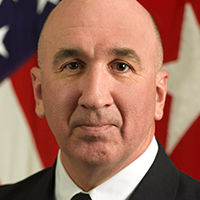Legacy Builders Philanthropic Revolution

Legacy Builders Conference Inspires Philanthropic Revolution
The recent “Legacy Builders” event has sparked a philanthropic revolution, inspiring attendees to leverage their accumulated wealth for world betterment. The event, held on May 15, 2024, in San Jose, CA, featured distinguished speakers including NFL legend and HGGC Partner Steve Young¹, retired three-star General Michael Barbero², and Becky Douglas³, founder of Rising Star Outreach. See the press release on YahooFinance.com. Their stories and insights set the stage for an engaging symposium where philanthropy, wealth management, and legacy planning converged.

Steve Young, NFL QB Legend
The core mission of Legacy Builders is to host bi-annual conferences across the United States, bringing together individuals passionate about making a global impact. These events aim to inspire attendees to reflect on their wealth and consider the potential positive changes it could effect. By uniting influential, outward-focused minds, Legacy Builders aspires to create a better world, both domestically and internationally. The organization proudly declares its mission as “The path where wealth creators transform into legendary forces, impacting the world today and for countless generations to come.” Building their personal and family legacy.
At the heart of these conferences are topics that resonate deeply with attendees: impact philanthropy, results-driven donations, and the creation and management of smart, effective foundations. These discussions provide valuable insights into the merits and occasionally tax advantages of philanthropy, encouraging participants to explore the numerous benefits of charitable giving and foundation creation.

Alan Olsen, CPA, Founder Legacy Builders & Managing Partner GROCO.com a family office tax & advisory firm.
Merits of Philanthropy and Foundation Creation*
Philanthropy offers numerous personal and societal benefits. For individuals, it provides a profound sense of purpose and fulfillment. By supporting causes they care about, philanthropists can leave a lasting legacy, ensuring their contributions have a meaningful impact for generations to come. Moreover, philanthropy fosters a sense of community and connectedness, as donors join forces with like-minded individuals to tackle pressing issues.
From a societal perspective, philanthropy drives significant social change. Charitable donations support essential services such as healthcare, education, and poverty alleviation, often filling gaps left by public funding. Foundations, in particular, can focus on long-term projects, providing sustained support that enables systemic change. By funding innovative solutions and advocating for policy changes, philanthropists can address root causes of societal problems, leading to lasting improvements.

General Mike Barbero ret.
Tax Advantages of Philanthropy and Foundation Creation*
In addition to the intrinsic rewards of giving, philanthropy may offer substantial tax benefits. Donors can receive tax deductions⁴ for their charitable contributions, reducing their taxable income. This can be particularly advantageous for high-net-worth individuals, as it allows them to lower their overall tax liability while supporting causes they believe in.
Creating a private foundation⁵ may offer even greater tax advantages. Foundations are typically structured as tax-exempt entities, meaning they are not subject to federal income tax on their investment earnings. Additionally, donors to private foundations can receive immediate tax deductions for their contributions, with the potential to carry forward any unused deductions for up to five years.
Private foundations also may offer flexibility in charitable giving. Donors can retain control over how funds are distributed, ensuring their philanthropic vision is realized. Foundations can support a wide range of activities, from direct grants to operating charitable programs, providing a versatile vehicle for impactful giving.
Moreover, foundations can engage in planned giving strategies, such as setting up donor-advised funds or charitable remainder trusts. These tools allow donors to maximize their philanthropic impact while optimizing their tax benefits. For instance, a charitable remainder trust can provide donors with income for a specified period, after which the remaining assets are donated to charity, offering both immediate and long-term tax advantages.

Becky Douglas
Legacy Builders: A Platform for Philanthropic Innovation*
Legacy Builders, conceived by Alan Olsen, managing partner at GROCO, one of Silicon Valley’s most acclaimed CPA and Family Office advisory firms, offers an unprecedented platform to unite individuals capable of making the world a better place. “We’re given the unique opportunity to bring individuals together that have the ability to make a positive impact in the world,” Olsen remarks.
Through its conferences, Legacy Builders provides a nexus of networking, a hotbed of innovative ideas, and a beacon of inspiration for those seeking to transform their wealth into a force for good. Attendees leave equipped with the knowledge, connections, and motivation to embark on their philanthropic journeys, creating legacies that will endure for generations.
By emphasizing the merits and tax advantages of philanthropy and foundation creation, Legacy Builders empowers individuals to make informed decisions about their charitable giving. As the organization continues to expand its reach, it will undoubtedly inspire countless others to join the philanthropic revolution, making the world a better place one legacy at a time.
Creating a Family Legacy: The Ultimate Benefit
Establishing a family legacy through philanthropy not only benefits society but also strengthens family bonds and values. When families unite in a common mission of giving, it fosters a sense of unity and shared purpose. Engaging multiple generations in philanthropic activities ensures that values such as empathy, responsibility, and altruism are passed down, creating a lasting family culture centered on giving back. This collective effort can also provide a sense of continuity and stability, as younger family members learn the importance of philanthropy from their elders.
Moreover, creating a family foundation can serve as an educational tool, offering hands-on experience in managing charitable funds, strategic planning, and decision-making. This practical involvement helps family members develop important skills and a deeper understanding of social issues, preparing them to be thoughtful, informed philanthropists in their own right. Ultimately, building a family legacy through philanthropy leaves an indelible mark on the world while enriching the lives of those involved, ensuring that the spirit of giving thrives across generations.

Alan Olsen (center), Founder, Legacy Builders
References:
- “Steve Young”.
- “Michael Barbero”.
- “Rising Star Outreach”.
- “Tax Benefits of Charitable Giving”. “Tax Benefits of Charitable Giving.” IRS, 2024, IRS Charitable Contributions.
- “Private Foundations”. “Private Foundations.” National Philanthropic Trust, 2024, National Philanthropic Trust.
*Not intended as tax advice, please see links to the referenced information source.
To view more content like this, click here to subscribe to our YouTube channel
And click here to receive our FREE Newsletter.


Looking to Grow Your Firm? Consider GROCO
There are hundreds of tax and accounting firms all over the country, including right here in the Bay Area. These firms come in all levels of size and expertise. At GROCO, we are always looking to grow our business and we know that many, if not all, companies are looking to do the same. If…
Is Corporate America Getting Away With Too Little Tax?
It’s an argument that’s all too common in the business world: big multi-national companies don’t pay their fair share of taxes. A new study will only serve to add more fuel to the fire, as according to its findings, seven of the 30 biggest companies in the United States reportedly paid more to their CEOs…
Business in New York Being Buried by Heavy Tax Load
New York, New York: It’s the town so nice they named it twice. But when it comes to taxes in one of the world’s greatest states, things aren’t so nice. That’s because New York is one of the worst places to live if you don’t want to pay a lot of taxes. New York has…
Thinking About Loaning Cash to Your Business?
Are you looking to start a business, or is your current business in need of some cash? Maybe you can’t get a loan from a bank, or maybe you would rather not use a bank. What about lending some of your own money to your company? Can you do that? Yes, you can, but you’ll…


